A full summer day in the life of a 20-something slacker beautifully reveals the old, the new, the amusing, and ironic contradictions in changing Berlin. His past, and the city’s, keep seeping through the present.
A Coffee in Berlin’s black-and-white imagery and jazzy music could signal the cinematic Berlin of noir and espionage, but scruffy Niko Fischer (Tom Schilling, star of Generation War) is a very contemporary guy when his girlfriend catches him sneaking out of bed to avoid her in the morning. He’d rather dig out photos of them together taken in romantic Paris back in his bare apartment full of unpacked boxes. By the time he discovers he’s late for an important appointment, he’s off on a day of a dozen encounters with colorful people and balky machines.
Running down endless corridors of bureaucratic authority, he’s grilled by an officious human lie-detector psychologist (a funny Andreas Schröders, like a German John Cleese) to see if he’s fit to have his driver’s license restored after repeated drunk driving. (If this in any way reflects real assessments, accident rates would go way down in the U.S. with this requirement for license reinstatements.) His lies don’t get his license back, leaving him dependent on trains (despite a broken ticket dispenser) and other drivers.
On the train, he’s stopped (and chased) by ticket inspectors at a formerly East German station. His friend Matze (Marc Hosemann), an unemployed actor, drives him around a couple of times, profanely complaining about the city’s “filth and scum.” They drop by the teenage entrepreneur Marcel. Like a post-war black marketer, he sells stolen sneakers out of his oblivious grandmother’s apartment. Niko prefers to hang out with her, listening to Bach in her recliner. Just about the only thing she doesn’t offer him is a cup of coffee.
He also accompanies Matze to a movie set, where Matze tries to get a job. Niko is disconcerted to be greeted with a Nazi salute by a preening Phillip Rauch (Arnd Klawitter) in uniform, but Phillip’s just a friend thrilled to have his biggest role. One of the best scenes is his cheerful plot synopsis and a scene of the overwrought film-within-a-film that’s a satire of Holocaust kitsch with an anguished S.S. officer and his Jewish lover. Niko just misses a shot at a fresh cup of coffee at craft service.
One big lie comes back to haunt him when he tracks down his attorney father (Ulrich Noethen) for help with his bank account, but dad now knows that Niko has been cashing his allowance checks after dropping out of law school. The interrogation doesn’t go well for him. A stop at a café turns into another embarrassment from his past catching up with him when a cute, pert blond (Friederike Kempter) recognizes him from middle school, where he led classmates to tease her, calling her “Roly Poly Julia.” He’s forgotten, but she hasn’t.
She’s anxious to show off her new svelte self, so she invites Niko and Matze to her avant-garde theater performance by a pretentious writer/choreographer in a 1990’s-style artists’ space (like the well-known, graffiti-filled Kunsthaus Tacheles). After the show, Julia (disturbingly) sets out on a revenge seduction of Niko: “Do you want to f— the fat little girl? Say it!”
Back home, he morosely stares out at noisy trains. His neighbor Karl (Justus von Dohnányi, debut director Jan Ole Gerster’s real neighbor) brings welcoming (inedible) meatballs from his wife, who he hides from in his basement man cave. As the day wears on into late at night, Niko drinks more and more.
Niko is filmed in silhouettes against windows and long shots of sitting alone on trams and U-Bahn trains, set to South African musician Cherilyn MacNeil’s piano leitmotif, and each of his encounters is framed by iconic black-and-white images of the city to jazz improvisations by the Major Minors. Cinematographer Philipp Kirsamer captures dawn through dusk and the silence of the wee hours—streetscapes, the Fernsehturm TV Tower, the architecture of massive apartment blocks, street murals, graffiti, and preserved remnants of the Berlin Wall.
The key encounter is near the end of the day in a bar (where the coffee machine has been, alas, turned off), changing the tone of the film, and perhaps Niko’s self-centered indolence. An elderly man (the brilliant Michael Gwisdek) sidles up to him with the late-night bonhomie of a man returning to his old neighborhood after 60 years. In an enthralling monologue, he points to where his school and playground were, where they learned to start each day with “Heil Hitler!” His bitter memory of his father egging him on to throw a stone at a window is a vivid description of a particular event from a child’s point of view. Their interaction turns into a profound lesson in conformity.
The ramifications of being passive and alone distinguishes this city road movie from sweet, similar-looking American mumblecores of young urban men searching for love over 24 hours, like Alex Holdridge’s In Search of a Midnight Kiss (2007) in Los Angeles, Aaron Katz’s Quiet City (2007) in Brooklyn, or Barry Jenkins’ Medicine for Melancholy (2008) in San Francisco. Niko just might set his sights a bit higher than that hot cup of regular coffee he is finally served.

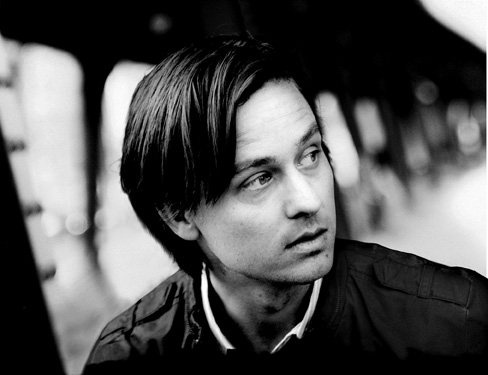
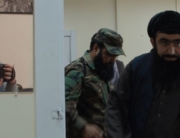
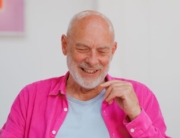
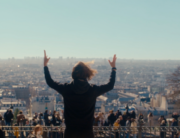
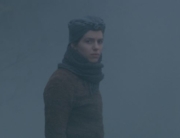
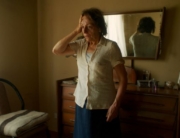
Leave A Comment